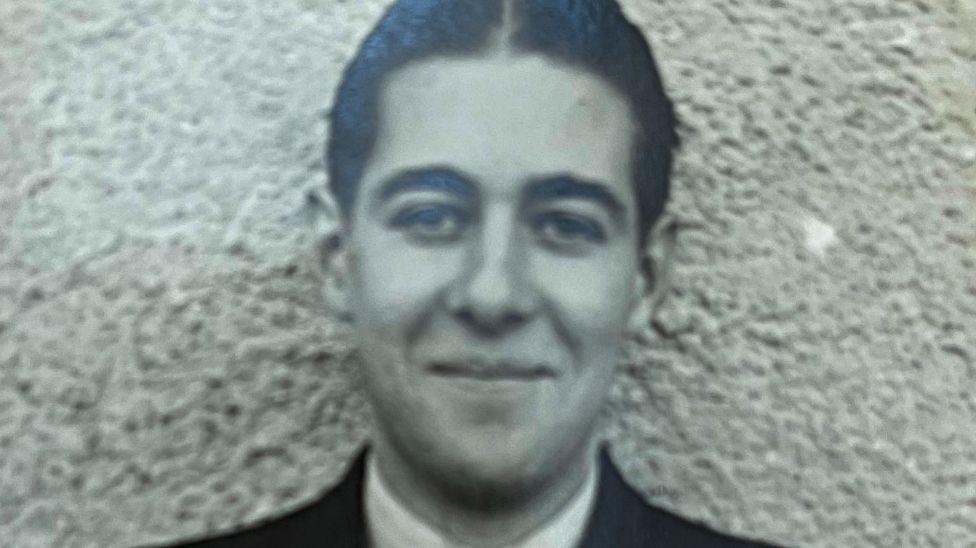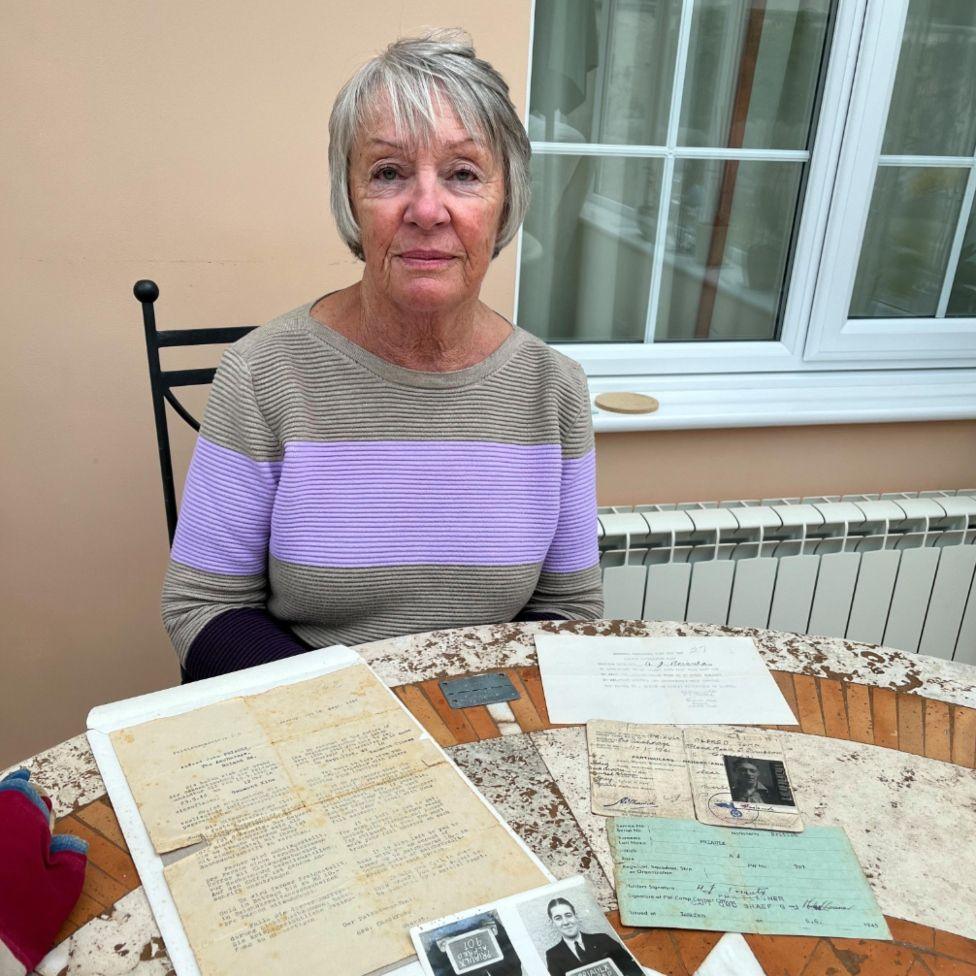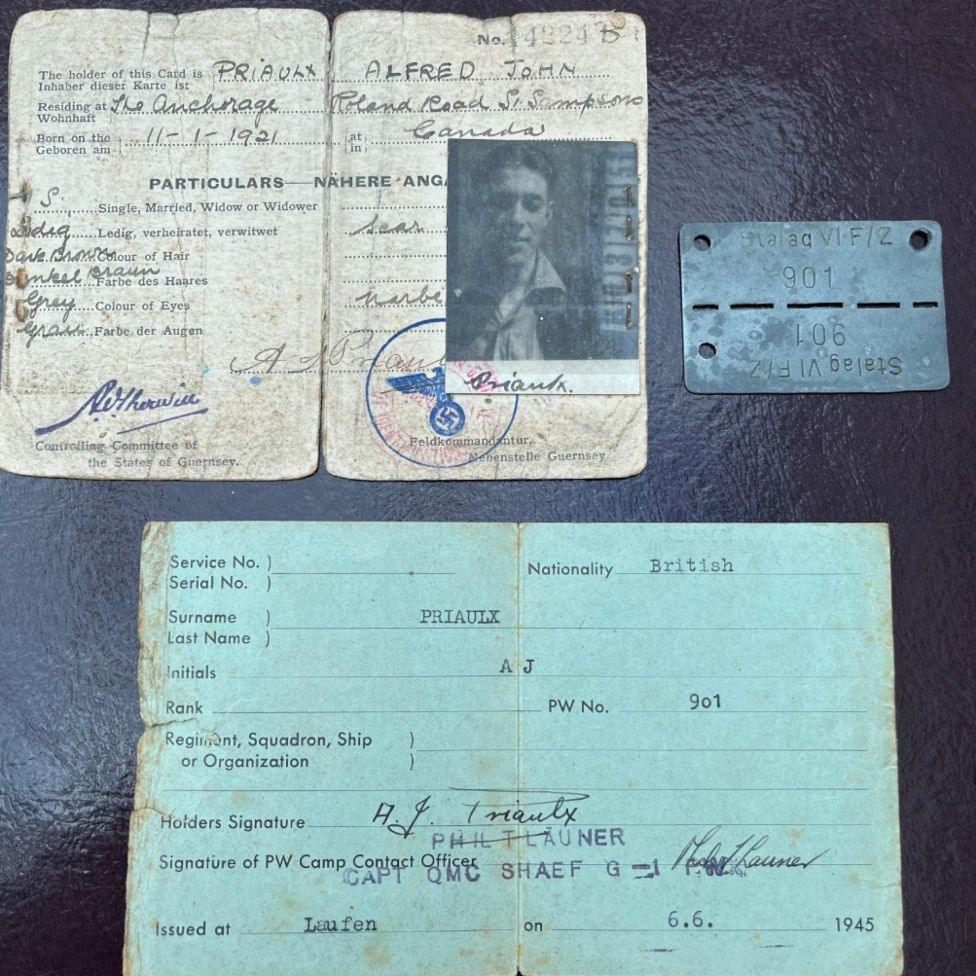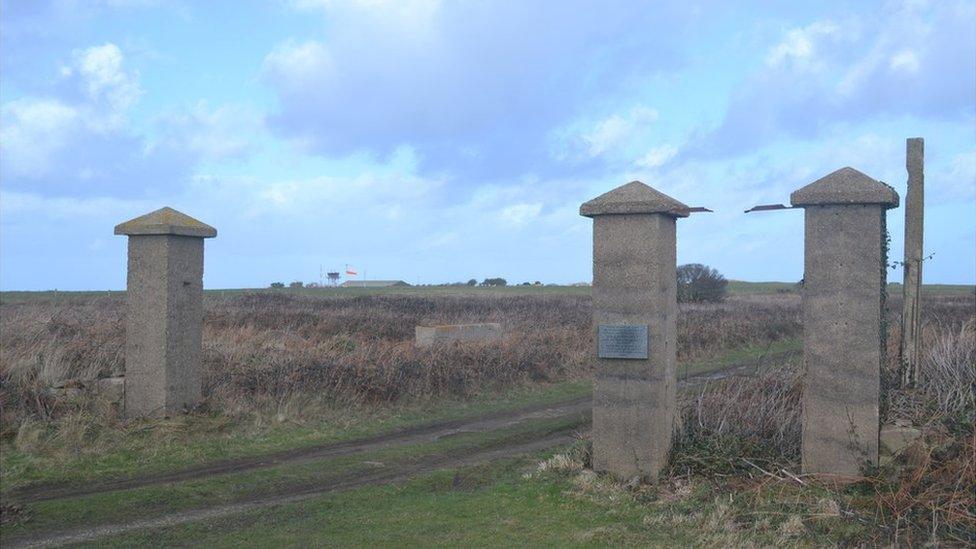School project reveals how man survived Nazi camp

Alf Priaulx said if the Germans "want me, they will come and get me"
- Published
A woman has shared how a school project uncovered their father's secret tale of survival after he was deported to a Nazi internment camp.
Judith Tolcher revealed she first learnt her father Alf Priaulx spent time in the Laufen internment camp in Germany after his granddaughter asked for help with a school project in the mid-1990s.
She shared her father's story as part of 2024 Liberation celebrations marking the end of Occupation in Guernsey.
Several precious mementos reveal details of how her father survived the ordeal after he was deported to Bavaria from Guernsey aged 21 in 1942.

Judith Tolcher learnt of her father's hidden history through his granddaughter's school project
A photograph, a dog tag and an original letter telling him where and when Mr Priaulx should report for deportation are among the mementos.
It was a period the Canadian-born Guernseyman never spoke of until the end of his life.
His family said Mr Priaulx feared he would never survive.
Judith said: "My dad was born in Ontario, Canada, and this is one of the reasons he was deported to Laufen.
"It happened because, in late 1941, Hitler ordered the deportation as a reprisal for actions in Persia of non-island-born British residents of the Channel Islands."
In late 1942, two German officers and a policeman arrived at his house, but he was not at home.
"He said: 'If they want me, they will come and get me,' which is what they did," Judith recalled.
"They went back with a letter that said he had to report on 23 September 1942 at the cinema.
"As with lots of people who were involved in the occupation and deportation, we knew he had gone away but we never knew exactly what had happened. He would never ever talk about it.
"It was never spoken about and my sister and I only found out about what had happened when his granddaughter Nicky was doing a project on World War Two at school and asked if he could give her some information."

Alf Priaulx's family have many of his internment camp documents
The family would discover Alf was the among the second group to arrive at the camp, where he would remain until the end of the war in 1945, battling ill-health and unsanitary conditions.
Judith said: "When they arrived, all the first group were standing at the gate and they all did a thumbs down.
"He said that wasn't what they wanted to hear or see, and talked about the toilet facilities... At night you weren't allowed out your hut, so you had a very large bucket."
But it was the support of his friends in the camp that kept him going.
Judith said: "He was taken ill while he was there with pleurisy.
"But, even though he was ill, he had to go on what they called the country parade into the main square and be counted.
"His friends used to stand close to him to help keep him standing upright.
"He reckoned he survived because he was 21 and relatively fit and healthy, and I guess that's another reason why he didn't talk about it.
"Every day he was here was like a bonus, because he didn't know at the time if he was coming home and if he would come home alive."
Alf did and the mementos his family hold close are among those helping to shine a light on a dark period of island history.
Follow BBC Guernsey on X (formerly Twitter), external and Facebook, external. Send your story ideas to channel.islands@bbc.co.uk, external.
- Published24 July 2023
